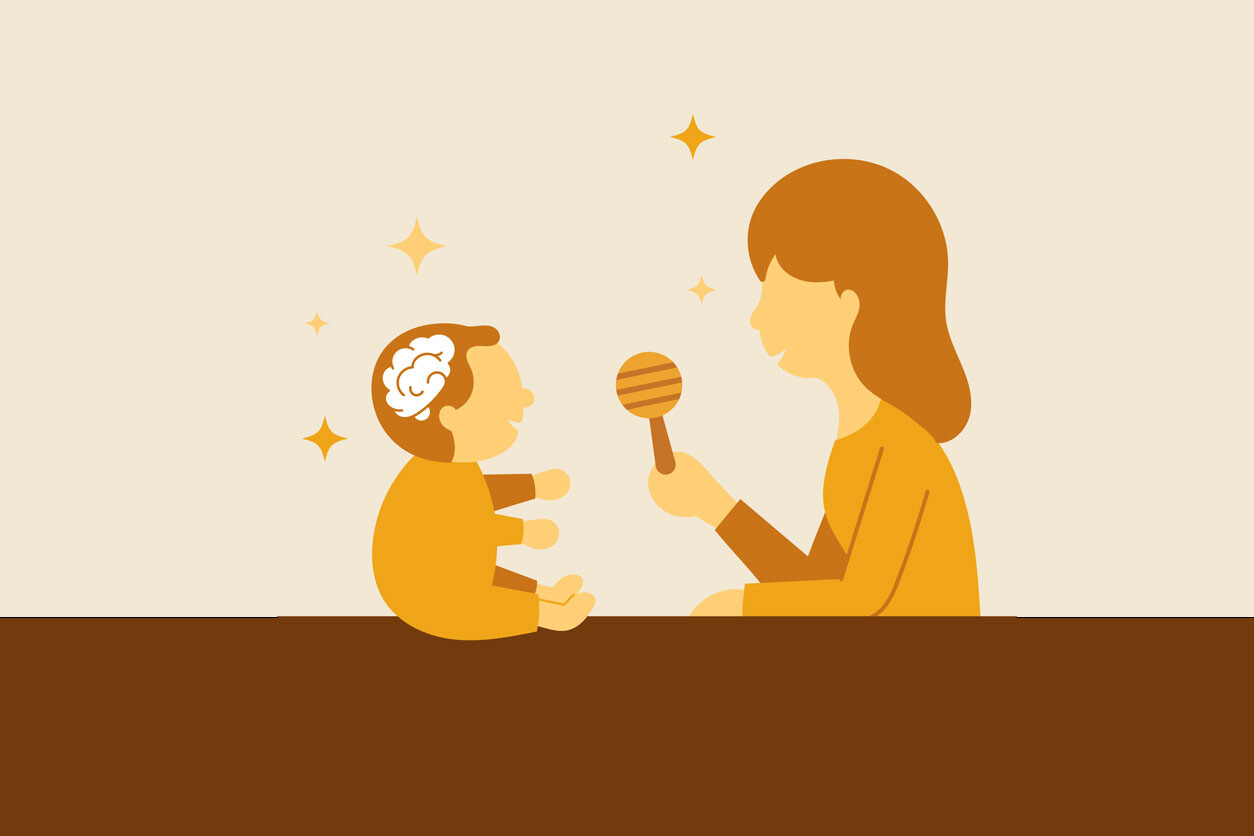How to Save up to 80% on Top Brands
When you sign up (for free!) for Brad's Deals, you'll get access to our personalized deals newsletter -- with curated picks from your favorite brands at the best stores. We're talking Nike, Hoka, Amazon, Walmart, and many more!
And when you work with brad's deals, you're actually working with a real person behind every post on Brad's Deals. We're proud consumer advocates, scouring the internet every day for best-of-web prices on just about everything.
Brad's Deals isn't a store - instead, we're here to help you find the best deals online, no matter where they are.
Saving you money is at the heart of what we do. With Brad’s Deals you can be sure you're getting the best prices on the brands you love.
💛 A Little Click Goes a Long Way
We carefully choose the ads in this newsletter to make sure they’re family-friendly and relevant. When you click on them, you’re helping keep Playful Parent free and thriving—so thank you for supporting us with just a tap or two!
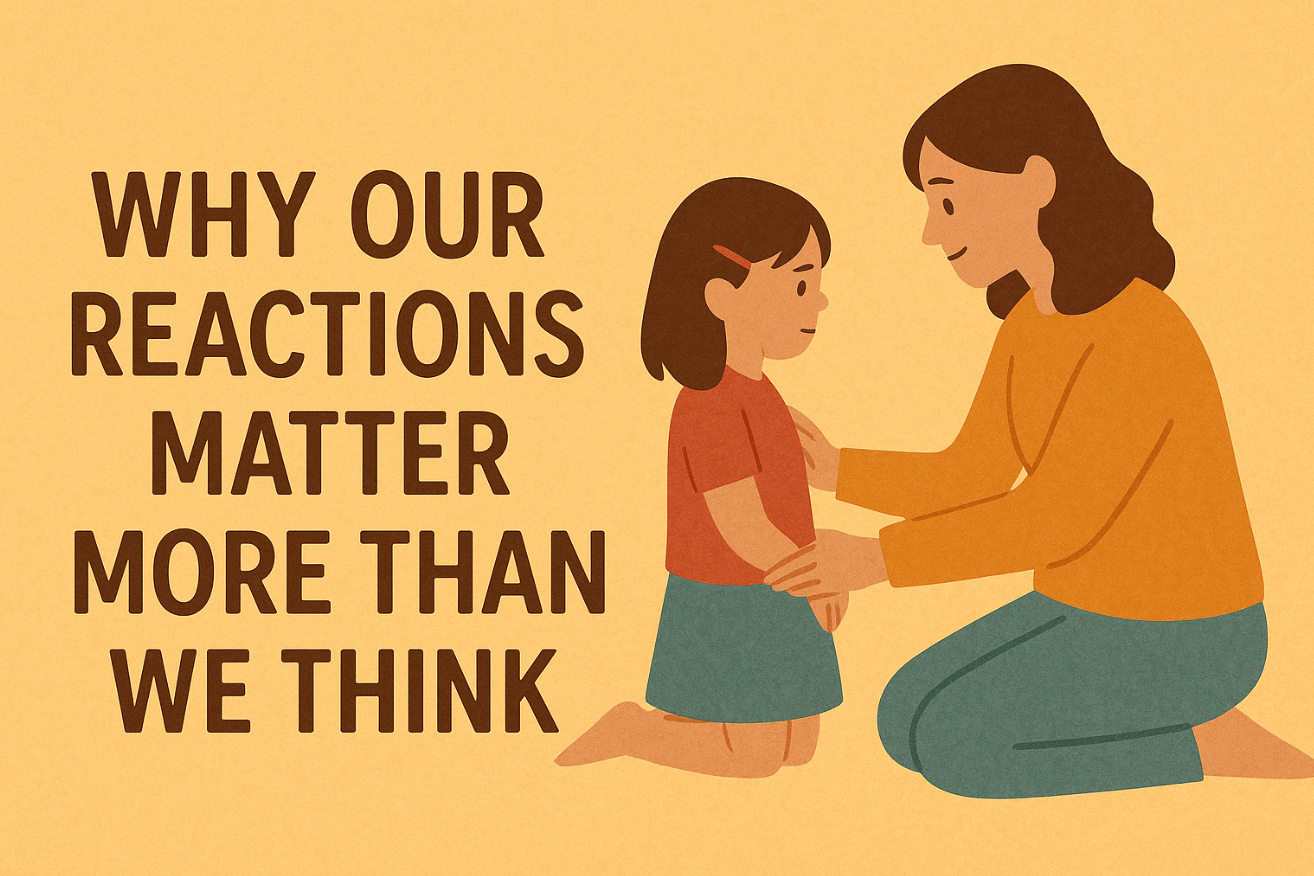
Why Our Reactions Matter More Than We Think
Parenting is filled with moments where we feel tested — spilled juice, tantrums in the store, backtalk when we’re already tired. It’s easy to think our role is to stop the behavior as quickly as possible. But research shows that the way we react in those moments is even more powerful than the behavior itself.
🧠 Children Borrow Our Calm
Young children don’t yet have the brain structures to fully regulate big feelings. Instead, they rely on “co-regulation” — borrowing our nervous system to find their way back to calm. When we respond with steadiness (not perfection, but steadiness), their body takes cues from ours.
Think of it like a Wi-Fi signal: your child is scanning you for connection. If you’re calm, they download calm. If you’re escalated, they’ll download stress.
💬 Our Reactions Become Their Inner Voice
Every time we respond to our children, we’re teaching them how to talk to themselves later.
A child who hears, “You’re being so dramatic” may grow into an adult who dismisses their own feelings.
A child who hears, “I can see you’re upset, and I’m here with you” learns that emotions can be felt, named, and soothed.
This doesn’t mean we can never raise our voice — it means our consistent patterns of response become scripts our kids carry with them for life.
🔄 Repair is Just as Powerful as Calm
Here’s the good news: you don’t need to respond calmly every single time. Parenting is messy. What matters is not avoiding mistakes, but showing our children how to repair afterward.
A simple repair might sound like:
“I didn’t like how I handled my frustration earlier. You didn’t deserve that. I’m sorry, and I love you.”
This models accountability, teaches that relationships can survive conflict, and shows that love is not withdrawn when mistakes happen.
🌱 The Ripple Effect of Our Reactions
Calm → Co-Regulation: Your child feels safe and learns emotional balance.
Anger → Fear Response: Your child’s stress response activates, and they learn to cope with fear.
Repair → Resilience: Your child sees that trust can be rebuilt, wiring confidence for future relationships.
Every reaction is a chance to build either fear or trust, shame or resilience. The choice is not about perfection, but about awareness.
🛠️ Practical Steps for Parents
Pause First. Even one deep breath before responding can shift the whole moment.
Name the Feeling. “You’re frustrated the block tower fell.” Naming emotions reduces their intensity.
Soften Your Tone. The words matter less than how we deliver them.
Keep Repair Scripts Handy. When things get messy, have a gentle phrase you can lean on.
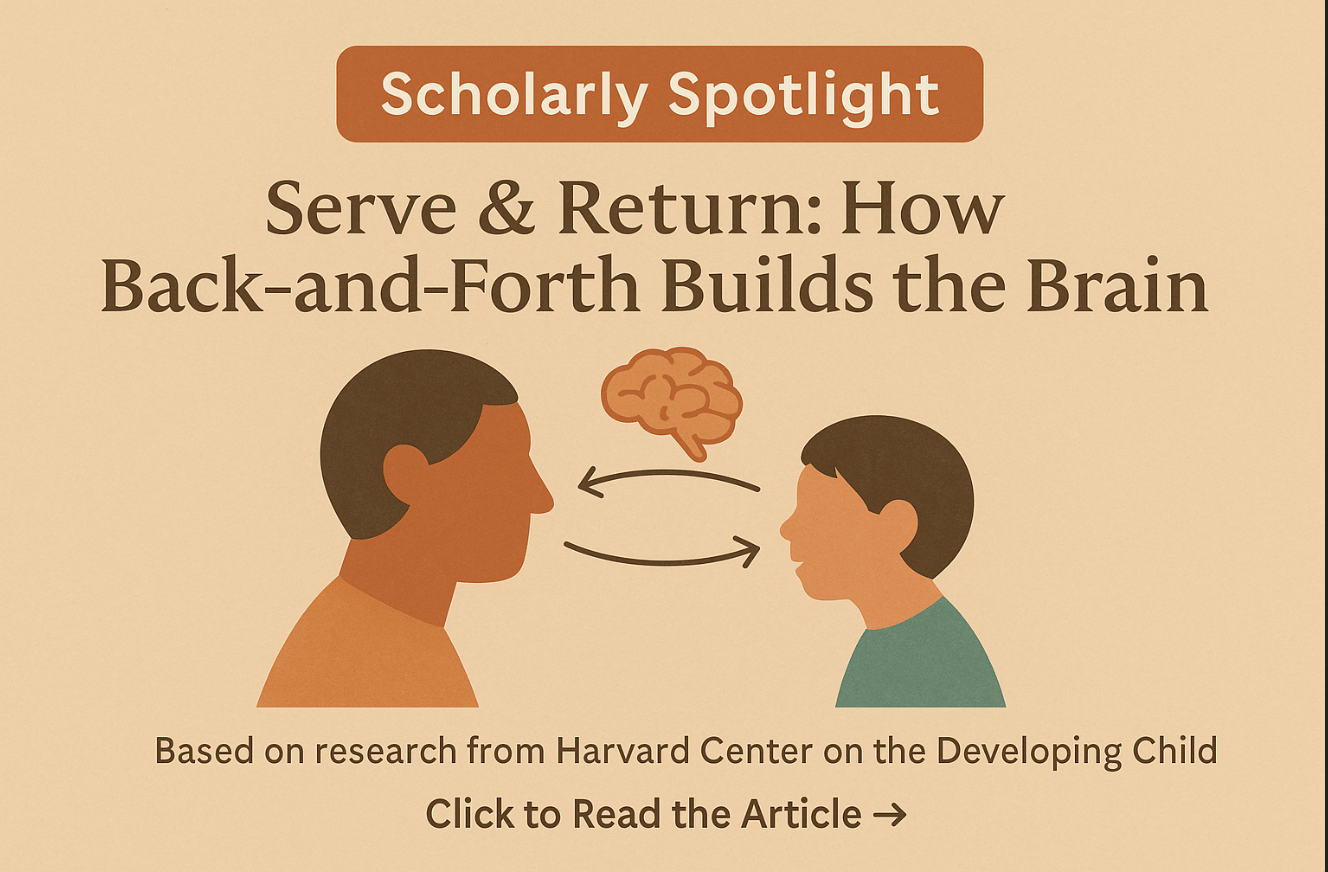
Want more fact based evidence? Check out this interesting read!

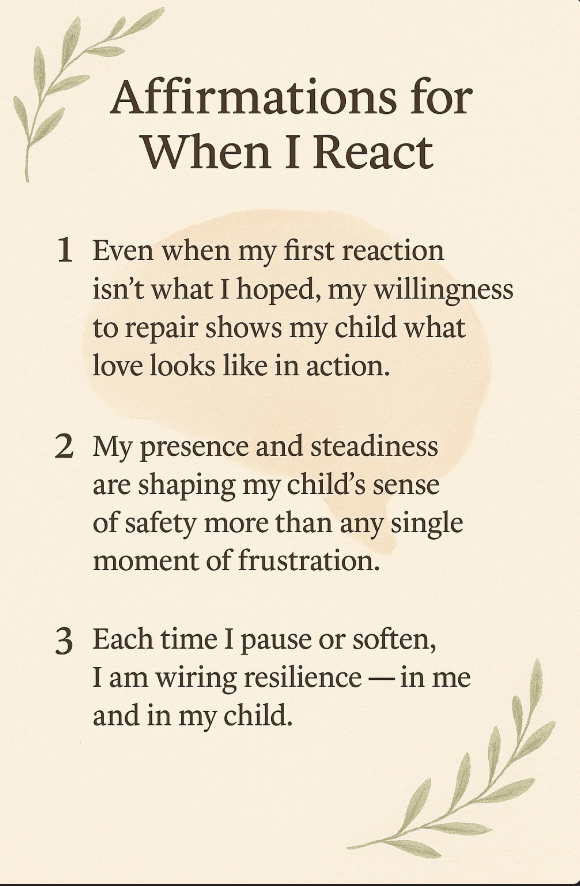
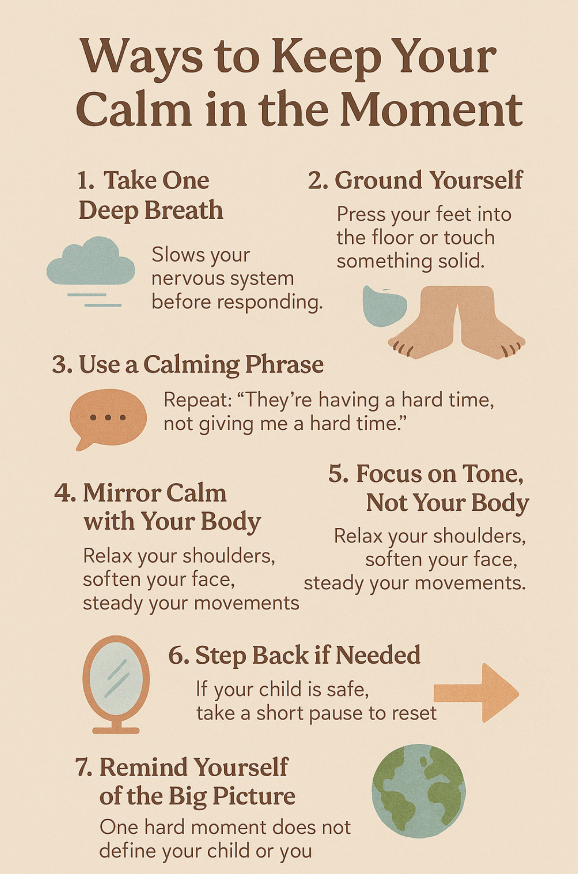
🌙 Reflection
As parents, we often judge ourselves by the moments we wish we could take back — the sigh when we’re exhausted, the raised voice when patience runs thin, the times we wish we had done it differently. But what truly shapes our children isn’t a single reaction — it’s the pattern of how we show up, again and again.
Every calm breath, every softened tone, every repair after a hard moment sends a message: love doesn’t leave when things get messy. Our reactions, imperfect as they are, are powerful opportunities to model humanity, accountability, and trust.
You don’t need to be flawless for your child to grow resilient. You only need to be willing to notice, to pause, and to try again. In the end, it’s not perfection that builds connection — it’s presence.


